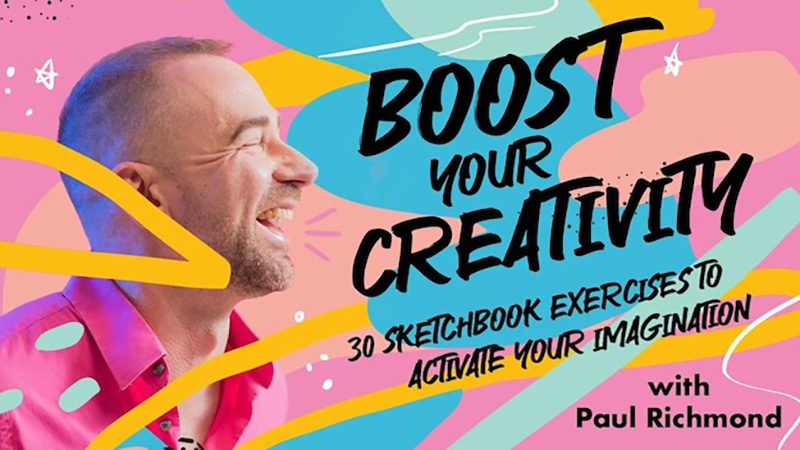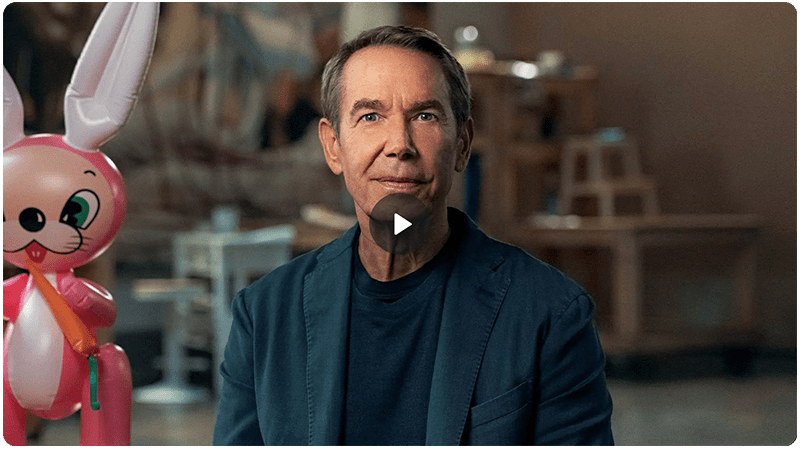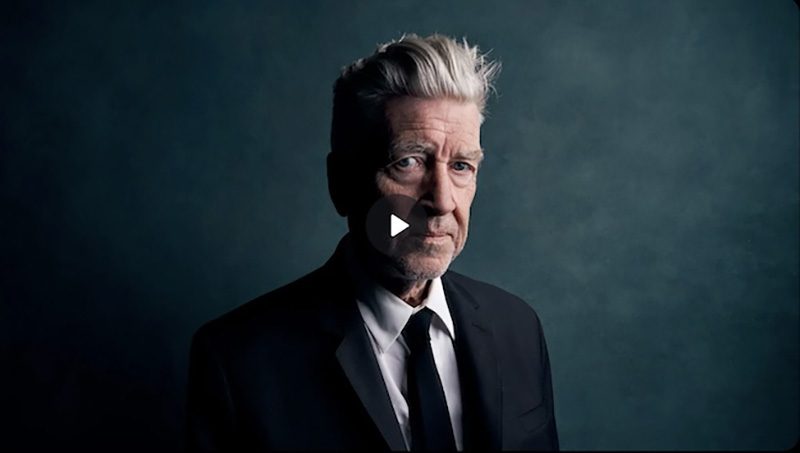Creativity can be a mysterious thing. One day, it flows effortlessly; the next, it’s as if every idea hits a wall. For many artists, the solitary nature of their work can make it difficult to break through these blocks. When you’ve been working in the same style or medium for a while, creativity can start to feel stagnant, leaving you searching for ways to inject fresh energy into your process. But just because creativity feels elusive doesn’t mean it can’t be cultivated. Whether it’s fresh techniques, new perspectives, or simply a way to reignite that creative spark, the right course can offer the boost you need to keep your ideas moving forward.
With so many online courses available, we’ve sifted through the options and chosen 8 that stand out for their potential to inspire new creative ideas.
When your creative ideas feel stuck in a loop, it’s easy to get frustrated. Many artists try to force inspiration or push through the block, but artist and educator Mònica Rodríguez Limia offers a different approach. Over the course of 17 lessons spanning four hours, you’ll explore practical methods like visual mapping with colored sticky notes and long-term habit-building strategies. Instead of relying on short-term solutions, this course helps you build a personalized system that keeps your creativity flowing consistently, giving you the tools to sustain momentum in your artistic practice.
Throughout the lessons, you’ll learn how to manage recurring blocks, organize your thoughts visually, and develop a sustainable creative plan. By the end, you’ll have strategies tailored to your process, designed to support consistent productivity and inspiration. Whether you’re an experienced artist or simply in need of a creative refresh, this course offers both structure and flexibility to help you move forward.
Visit Course

Sometimes, shaking off creative blocks means going back to the playful, uninhibited creativity we had as kids. Paul Richmond’s course embraces this idea with 30 simple but powerful sketchbook exercises designed to reignite your imagination. Each exercise encourages you to stop worrying about perfection and simply enjoy the process. Using everyday tools like pencils and paper, Richmond guides you through activities that turn spontaneous marks and doodles into fresh ideas. It’s a great fit for artists looking to break away from rigid routines and rediscover the joy of creating, all while developing a daily creative habit. The exercises are quick and flexible, making them perfect for any artist wanting to experiment.
Visit Course
Artistic growth often involves confronting inner barriers that feel invisible but can be difficult to overcome. Me Ra Koh, an acclaimed photographer and creativity expert, brings a deeply personal and introspective method to breaking through those hidden barriers that hold you back. Instead of focusing on quick solutions or generic advice, she guides you through her “10 Stages of Growth,” a framework that helps you identify the emotional roots of your creative struggles.
Over six in-depth lessons, Koh uses storytelling, real-life examples, and emotional clarity to show how each stage of growth corresponds to a specific block in your creative journey. Rather than offering short-term fixes, Koh’s approach helps you build a lasting understanding of your creative process. Her focus is on sustainable growth, equipping you with strategies to maintain long-term motivation and overcome future creative challenges.
Through reflection and actionable exercises, you’ll come away with a personalized plan for managing the emotional and practical aspects of your artistic challenges. Whether you’re feeling stuck or simply looking to refine your creative practice, this course offers a fresh, introspective approach to reconnect with your creativity.
Visit Course
Looking to improve their creative thinking skills across various areas, including business, and personal development, not just art? Then this is the course for you. It’s designed around five core techniques: Subtraction, Division, Multiplication, Task Unification, and Attribute Dependency. These techniques offer structured methods to break through mental blocks and generate more innovative ideas in everyday situations. Beyond these five core techniques, the course explores how the brain generates and develops ideas, introducing exercises that enhance creative thinking in various contexts.
This course is not just for beginners; intermediates and advanced learners will also find valuable insights, particularly in applying these techniques to various professional and personal challenges. The emphasis is on creativity as a skill that can be developed through practice, making it a useful resource for artists and anyone else looking to expand their creative capacity.
Visit Course
What if you could cultivate creativity the same way you grow a garden? That’s the premise behind this five-hour course, which is broken into 24 short, actionable lessons. Each chapter combines creative exercises with reflective practices to help you plant the seeds of new ideas. Rather than just focusing on artistic output, “Spark Your Creativity” encourages you to explore your imagination through guided visualization, storytelling techniques, and brainstorming activities.
This course stands out for its balance between structured methods and open-ended creativity, providing tools that not only inspire but also teach you how to sustain your creative flow over time. With lifetime access and a low entry price, it’s an accessible option for artists looking to reframe how they think about generating ideas, offering practical methods to build a more sustainable and dynamic creative practice.
Visit Course

For artists fascinated by contemporary art’s ability to turn everyday objects into high art, Jeff Koons’ MasterClass offers an insightful look into his creative process. Known for his Balloon Dog sculptures and the Banality series, Koons shares the inspirations behind his most famous works. The course spans 13 lessons, with Koons guiding students through topics like scale, color, form, and the emotional power of objects. Whether you’re interested in how he elevates mundane items or how he incorporates bold colors, Koons emphasizes the importance of trusting your instincts and finding art within your own experiences.
The course doesn’t just focus on technical skills but explores the deeper philosophy of art-making, inviting students to think of their work as part of a broader, ongoing process. One highlight includes a behind-the-scenes look at his Pink Ballerina sculpture, revealing how he blends cutting-edge technology with traditional materials. This course is perfect for those looking to understand the intersection of technology and art and how to harness personal iconography to communicate with an audience
Visit Course
Juliet Piper’s approach to creative growth is both holistic and deeply personal. This course offers a unique blend of practical techniques and mindset-focused lessons that help artists conquer perfectionism, procrastination, and self-doubt. Rather than just providing quick fixes, the sessions focus on developing lasting habits that support a lifetime of artistic expression. Piper uses her experience in music and visual arts to guide you through everything from mastering self-promotion to building authentic connections within the creative community.
In addition to artistic development, there’s a strong emphasis on balancing creativity with personal well-being. Piper’s lessons are not just about making art but about nurturing the mindset and habits that sustain a lifelong creative practice. With over 4,000 students already enrolled, this course appeals to artists of all levels who are looking to reconnect with their creative drive while learning how to maintain it through self-care, social media strategies, and long-term planning.
Visit Course
For artists seeking a clear and structured path from concept to completion, Brent Eviston’s course offers more than just techniques—it teaches you how to build your entire creative workflow. Over six hours of detailed instruction, Eviston breaks down the process into manageable stages, starting with foundational brainstorming techniques that help refine your initial ideas. Each lesson is designed to guide you through challenges like procrastination and self-doubt while offering actionable steps for project planning, from sketching concepts to managing timelines.
The course is particularly useful for those who often struggle to maintain momentum on larger projects. Eviston’s methodical approach doesn’t just teach you how to make art—it shows you how to stay organized and motivated throughout your creative process. You’ll learn how to turn an abstract idea into a tangible, polished work, while also developing the skills to apply these methods to future projects. With practical exercises and a focus on long-term artistic growth, this course is a valuable resource for artists looking to create with consistency and purpose.
Visit Course
Bonus Course

David Lynch, a legendary filmmaker known for his surreal and avant-garde films like Mulholland Drive and Twin Peaks, teaches creativity through the lens of filmmaking in his MasterClass. While this class is primarily aimed at aspiring filmmakers, Lynch’s unique exploration of creativity, intuition, and the artistic process makes it a valuable bonus for visual artists of any medium. Lynch takes his students through the mechanics of storytelling, film composition, and creating mood, but the lessons in this course transcend film, offering universal insights into the creative mind.
For visual artists, Lynch’s teachings on how to develop ideas from the subconscious and embrace spontaneity can be particularly inspiring. His belief that creativity should come from within, and that the process is just as important as the final product, aligns perfectly with the work of painters, photographers, and sculptors. Lynch’s emphasis on meditation and mindfulness as tools to unlock deeper creative potential can help visual artists connect more intimately with their work, allowing them to produce art that resonates on a deeper, emotional level.
Moreover, Lynch’s lessons on finding beauty in everyday objects and transforming mundane moments into rich, artistic material is a skill that any visual artist can adopt, whether it’s through photography, painting, or any other medium. This course serves as a reminder that creativity isn’t bound by a specific medium; instead, it’s about tapping into your unique perspective and allowing your work to speak from that place.
By including Lynch’s class in this list, visual artists are given the opportunity to expand their creative approach, learning techniques that push them out of their comfort zone and into more experimental and emotionally charged territory.
Visit Course
There’s Always Room for New Ideas, No Matter How Creative You Are
Creativity isn’t a static trait or something that comes in predictable waves. It evolves with the artist and the process itself. Each course in this list offers a unique perspective on how to access that evolving creativity, not by prescribing rigid methods but by opening up possibilities. The power of these courses lies in their ability to guide artists through phases of inspiration, introspection, and execution, helping them confront the emotional and psychological hurdles that often stand in the way.
What’s essential to remember is that creativity thrives in unexpected places. It emerges from allowing yourself to explore new approaches, embrace uncertainty, and even make mistakes. The real growth happens when you can recognize that art is less about perfection and more about finding your voice through experimentation and persistence. These courses aren’t just about techniques; they offer pathways for artistic self-discovery that can breathe new life into any creative practice. By integrating these ideas, you open the door to creative breakthroughs that may take your work in directions you never anticipated.
